Indigenous Governance Database
custom and tradition
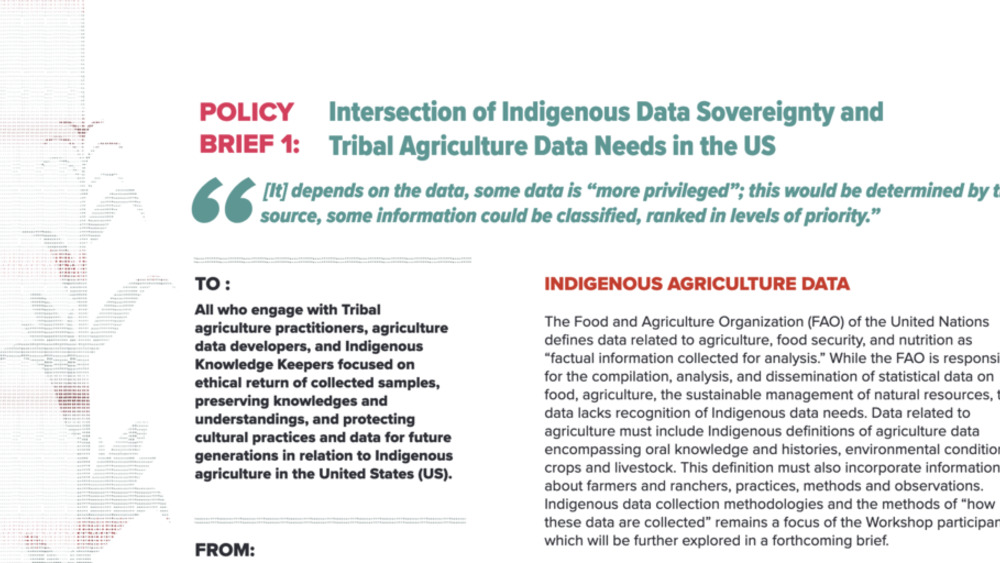
Intersection of Indigenous Data Sovereignty and Tribal Agriculture Data Needs in the US
Indigenous Peoples have always been agriculture data developers and keepers. Acknowledging the importance of Indigenous agriculture data to communities, an eight member Indigenous steering committee representing eight different Tribal Nations throughout the United States (US) designed and…
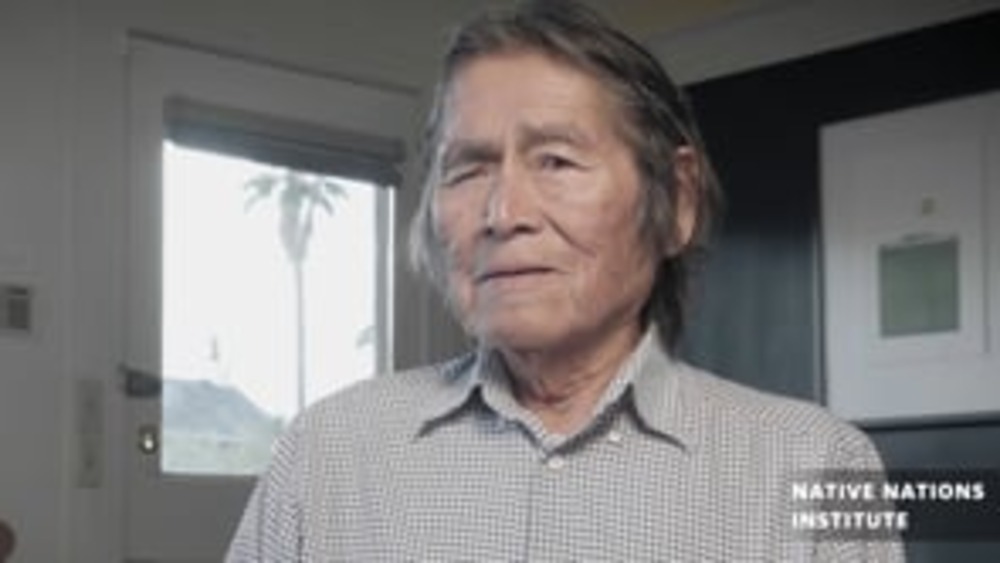
Vernon Masayesva: Self-Governance and Protecting Water
Former Tribal Chairman of the Hopi Nation and Executive Director of Black Mesa Trust, Vernon Masayesva relays his thoughts about advocating for self-governance and protection of water rights for Indigenous people. His pursuits in holding accountability of mining in Hopi territory has made Vernon…
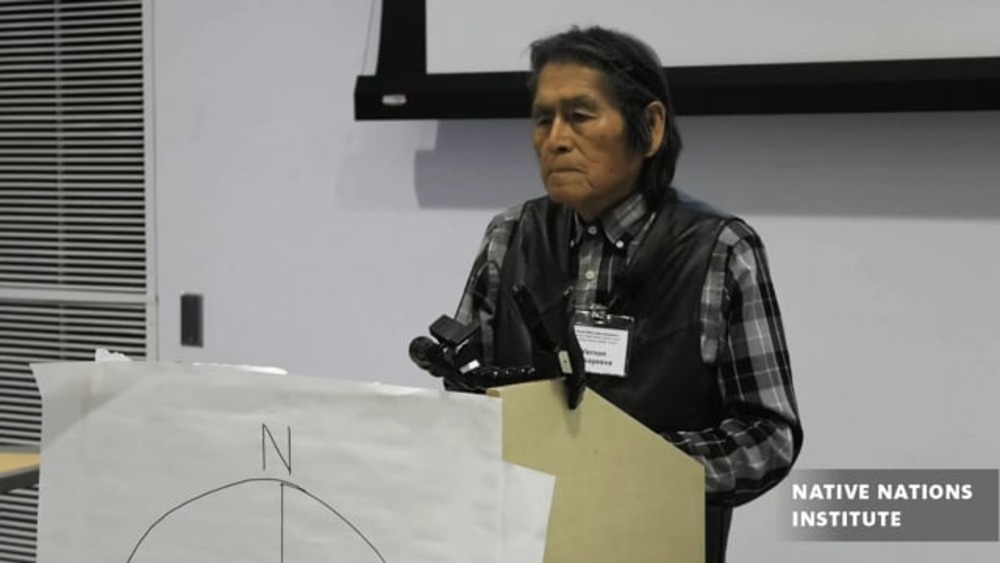
Vernon Masayesva Keynote: Water Ethics Symposium
Vernon Masayesva (Hopi) is the Executive Director of Black Mesa Trust and leading advocate for protecting water resources for the Hopi Nation. He's a Hopi Leader of the Coyote Clan and former Chairman of the Hopi Tribal Council from the village of Hotevilla who has worked for decades…
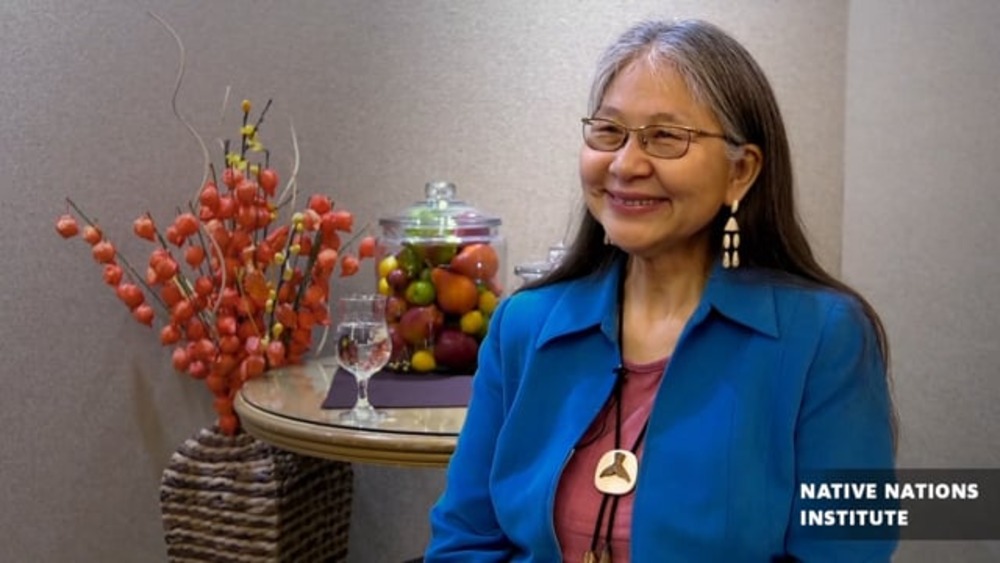
Theresa Arevgaq John: Alaska indigenous governance through traditions and cultural values
Theresa Arevgaq John is a well known Y’upik cultural advocate and Associate Professor in Indigenous Studies and the Department of Cross-Cultural Studies at the University of Alaska Fairbanks and has intimate knowledge about cultural practices within Indigenous governance. She advocates…
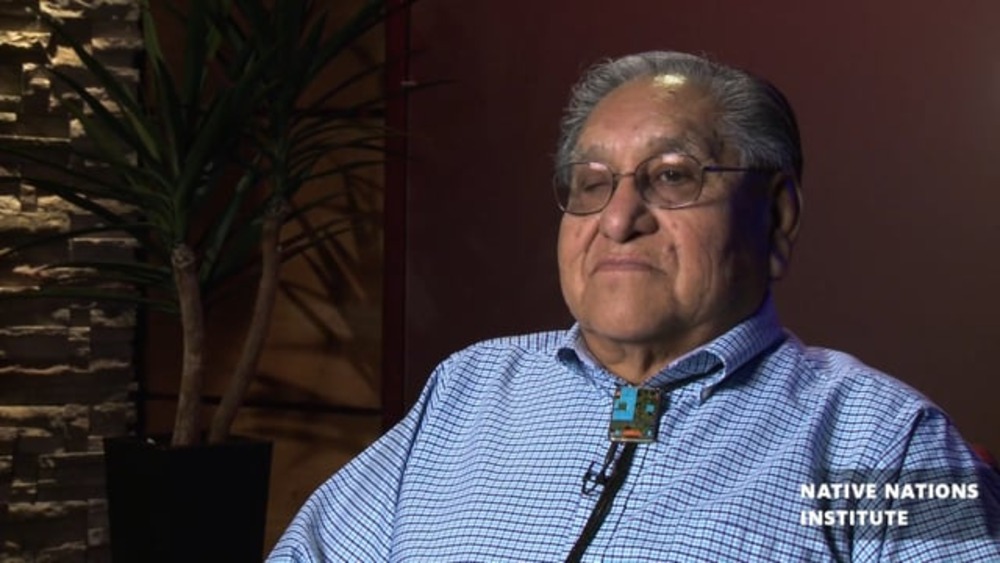
Leroy Shingoitewa: Self-Governance with Hopi Values
Leroy Shingoitewa, member of the bear clan, and served as chairman of the Hopi tribe and since January 2016, has served as a councilman representing the village of Upper Moenkopi. He recalls the intricacies of governing while maintiang Hopi values and traditions.
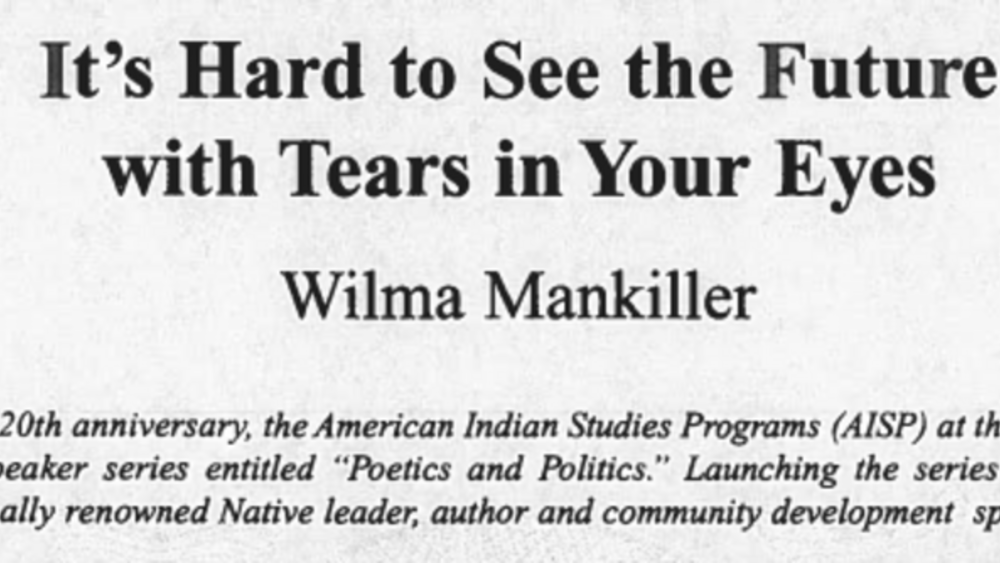
It's Hard to See the Future with Tears in Your Eyes
To commemorate its 20th anniversary, the American Indian Studies Programs (AISP) at the University of Arizona staged a speakers series entitled "Poetics and Politics." Launching the series was Wilma Mankiller (Cherokee), a nationally renowned Native leader, author, and community development…
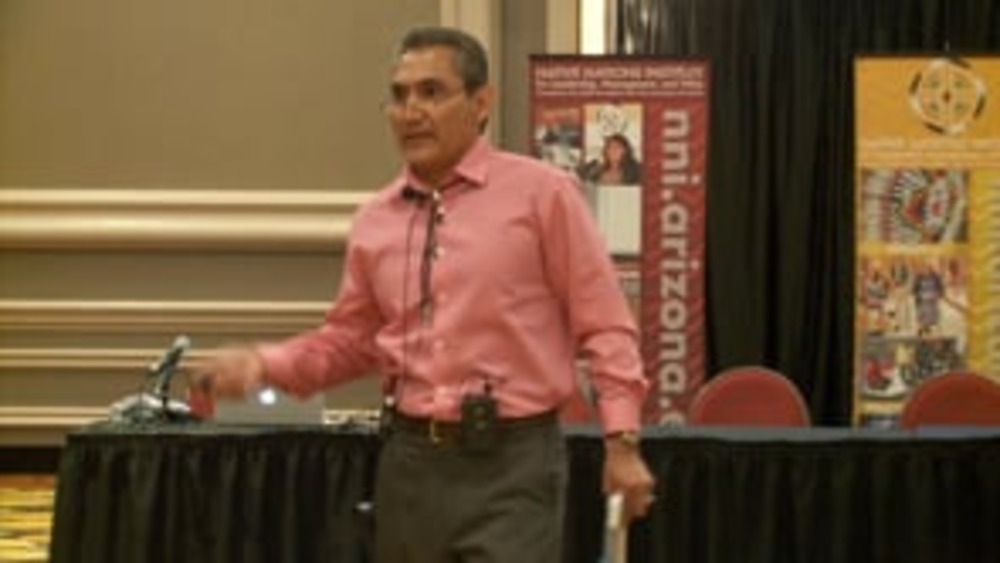
Joseph Flies-Away: Knowing, Living and Defending the Rule of Law
Joseph Flies-Away (Hualapai), Associate Justice of the Hualapai Nation Court of Appeals, discusses the importance of Native nations building and living a sound, culturally sensible rule of law -- through constitutions, codes, common law and in other ways -- that everyone in those nations knows,…

Rebuilding the Tigua Nation
The Tigua Indians of Ysleta del Sur Pueblo in Ysleta, Texas produced this 16-minute film in 2013 to demonstrate how a Native American tribe can work hard with business skills and tribal customs to shape a prosperous future through education for all levels of the Tigua Nation.
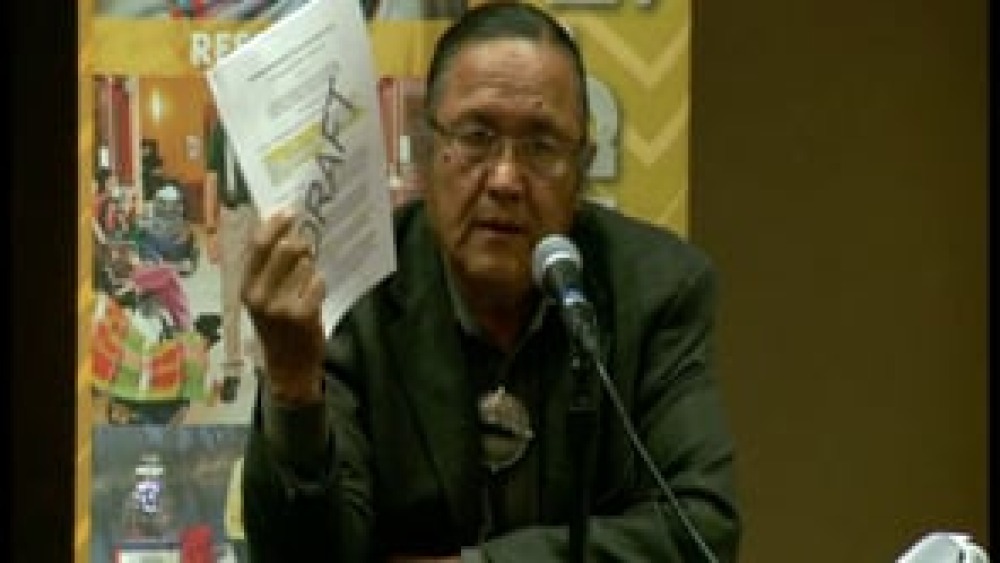
Robert Yazzie: Traditional Principles of Leadership
Former Chief Justice Robert Yazzie of the Navajo Nation Supreme Court provides an overview of the traditional Diné governance system and specifically the leadership principles that Diné leaders relied upon to make sound, informed, strategic decisions in consultation with and on behalf of…
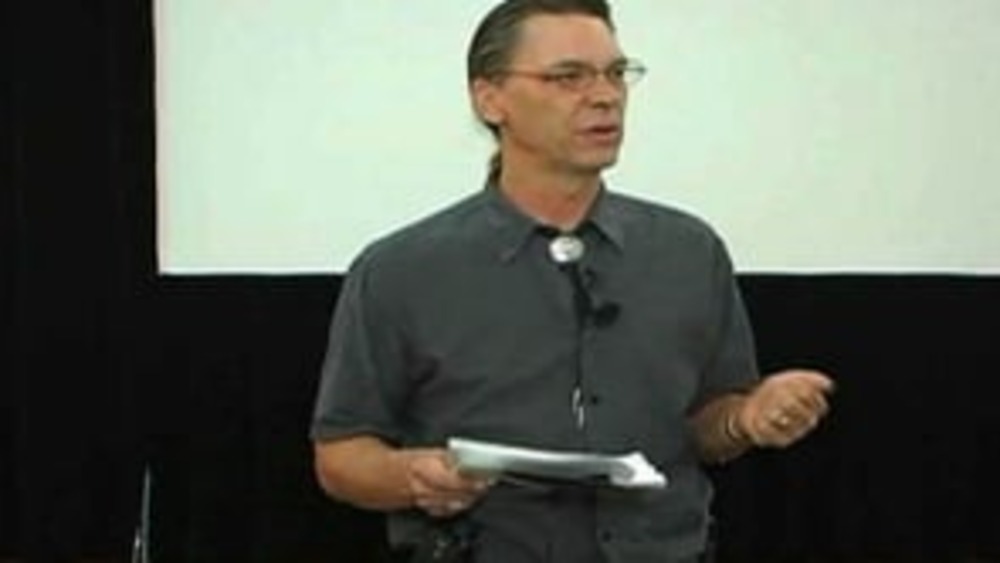
From the Rebuilding Native Nations Course Series: "Justice Systems: Key Assets for Nation Building"
Professor Robert A. Williams, Jr. discusses how an effective, independent justice system can play a pivotal role in a Native nation's efforts to exercise its sovereignty and strengthen its communities.
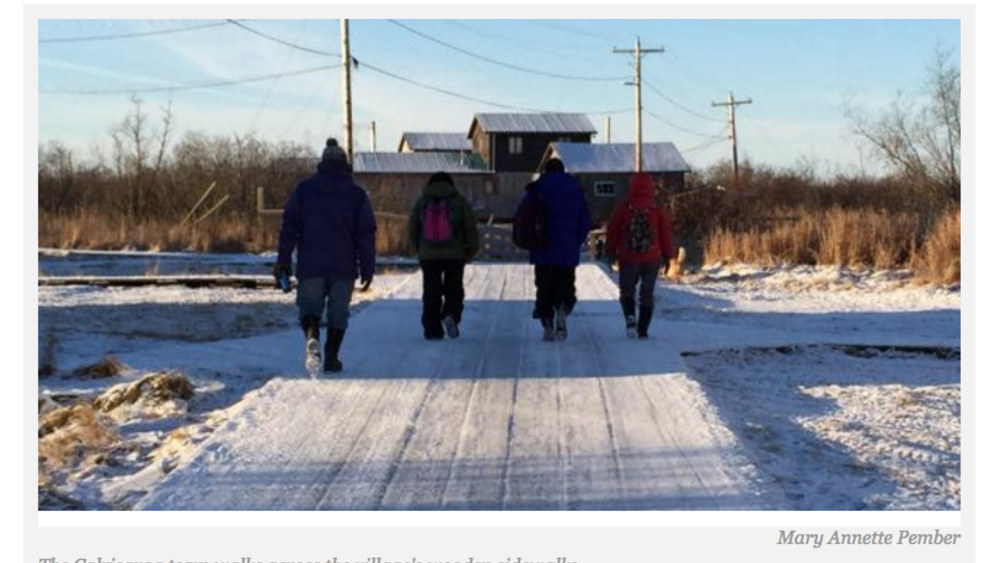
A Fearless Fight Against Historical Trauma, the Yup'ik Way
They were building the young man’s coffin in the front yard when we arrived. Portable construction lights harshly illuminated the scene as men worked in the shadowy dawn that lasts almost until noon out here on the tundra. The men worked steadily and quietly in a manner that suggested front-yard…
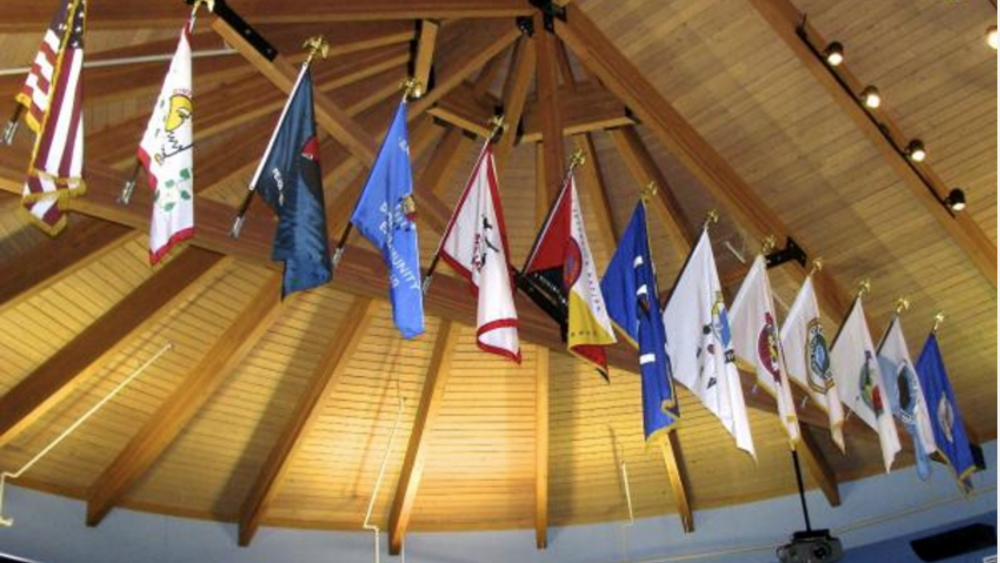
Red Lake Constitutional Reform Informational Meetings Held
The meeting at Bemidji was one leg of the second round of informational meetings conducted by the Red Lake Constitutional Reform Committee (CRC) in order to seek input and feedback from the membership regarding Constitutional Reform. Meetings are held in Duluth and the Twin Cites in addition to the…
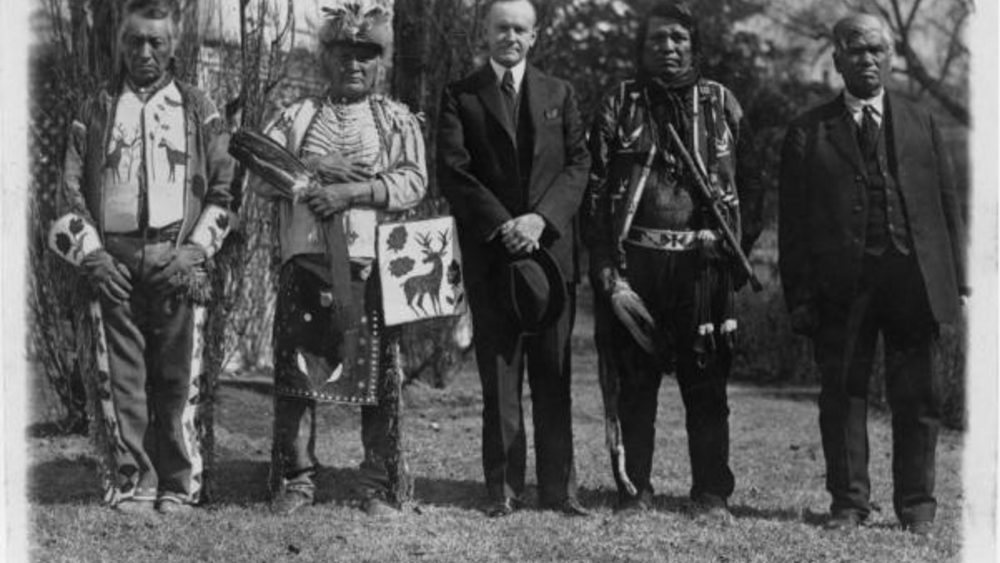
Indigenous and 21st Century Nationalisms
Indigenous Peoples live within the boundaries of nation-states but usually do not conform to the cultural, political, economic institutions and identities of their host states. Most contemporary democratic nation states are created by agreement through adoption of a constitution, which spells out…
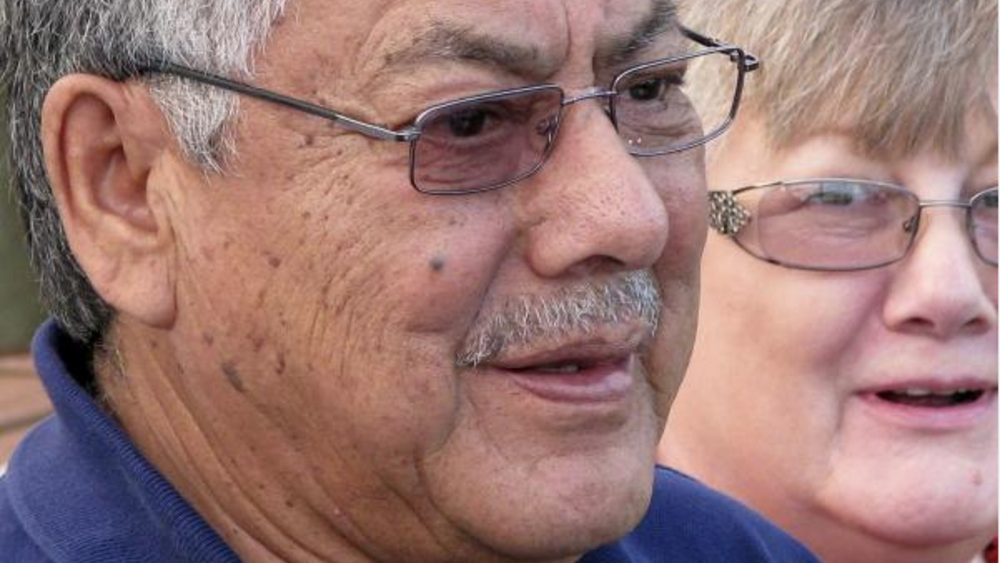
Ancient Wisdom for Modern Times: The Seven Teachings
"We are invited once again to revisit the time-honored teachings, and to embrace the old ways in order to renew our connection to the Sacred Teachings. We need this old knowledge in our lives to live in these modern times of technology." So began a PowerPoint presentation by Chi-Ma'iingan/Great…
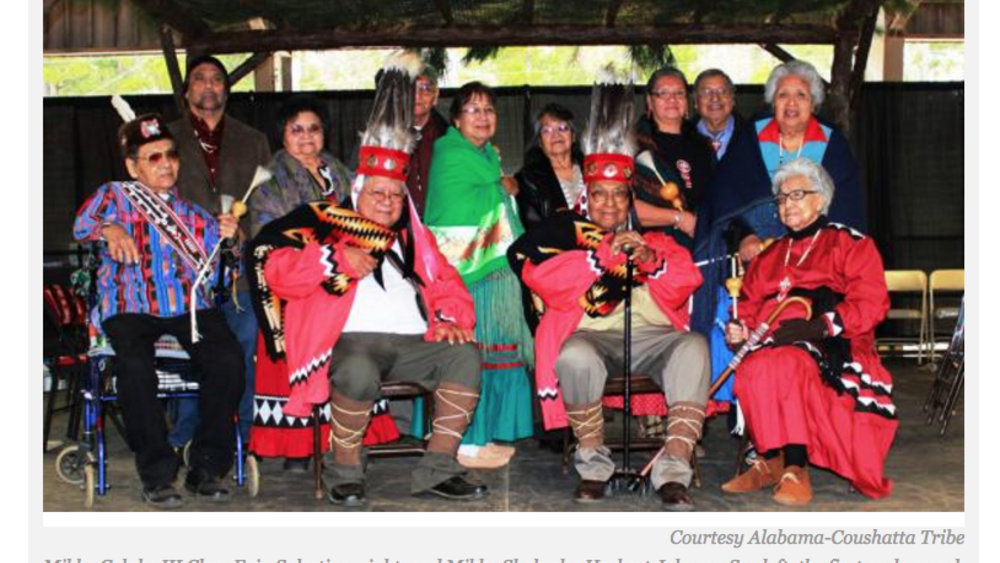
A Lifetime Journey: Alabama-Coushatta Name New Chiefs
For the first time in nearly two decades, the Alabama-Coushatta Tribe of Texas is welcoming a new principal and second chief. The 1,200-member tribe, located on 4,500 acres of land north of Houston, elects its chiefs to life terms. An inauguration ceremony held January 1 was the first such event…
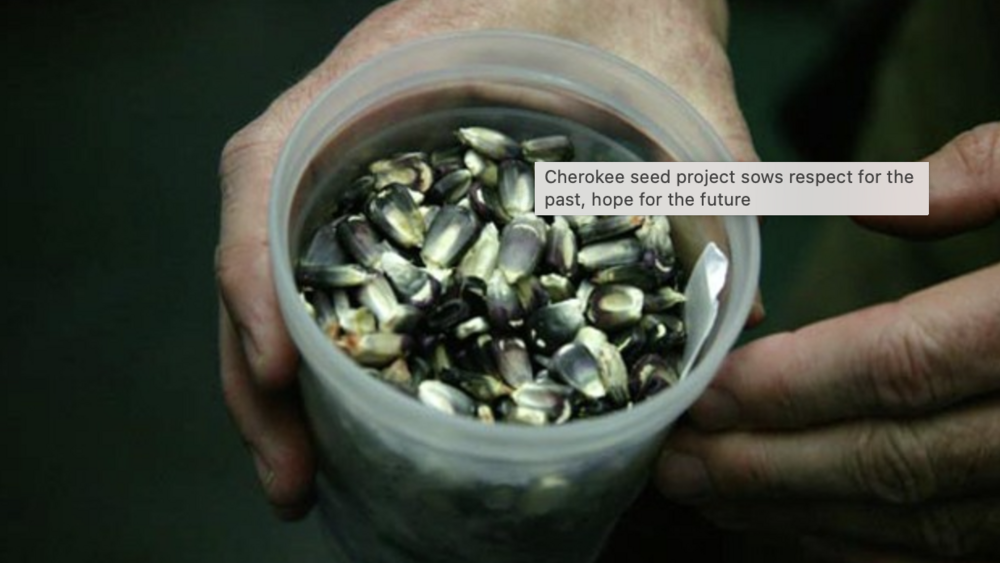
Cherokee seed project sows respect for the past, hope for the future
The Cherokee Indians are preserving the roots of their heritage with a program that allows officially recognized members of the tribe to access seeds that are unique to the Cherokee Nation. Principal Chief of the Cherokee Nation, Bill John Baker explained the seeds' lineage to CNN. "This strain of…
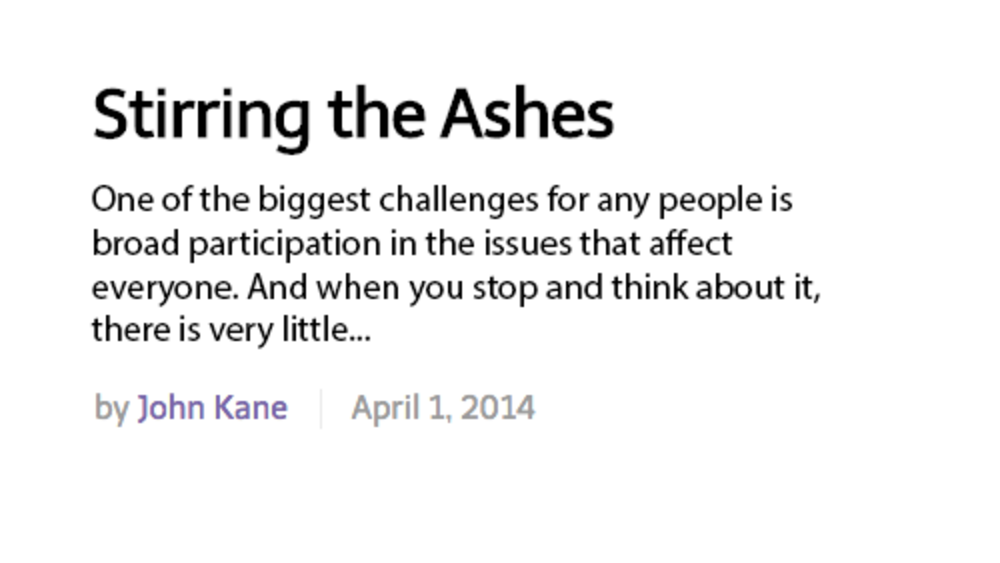
Stirring the Ashes
One of the biggest challenges for any people is broad participation in the issues that affect everyone. And when you stop and think about it, there is very little from the smallest ripples in a family to major calamities in a community that occurs without impacting others. The notion of “mind your…
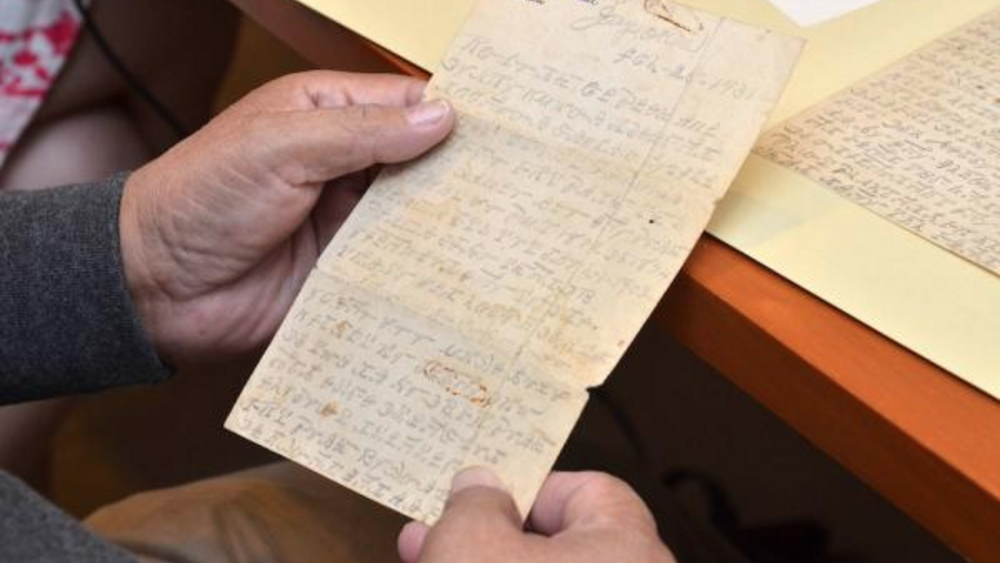
Keeping Language Alive: Cherokee Letters Being Translated for Yale
Century-old journals, political messages and medicinal formulas handwritten in Cherokee and archived at Yale University are being translated for the first time. The Cherokee Nation is among a small few, if not the only tribe, that has a language translation department who contracts with Apple,…
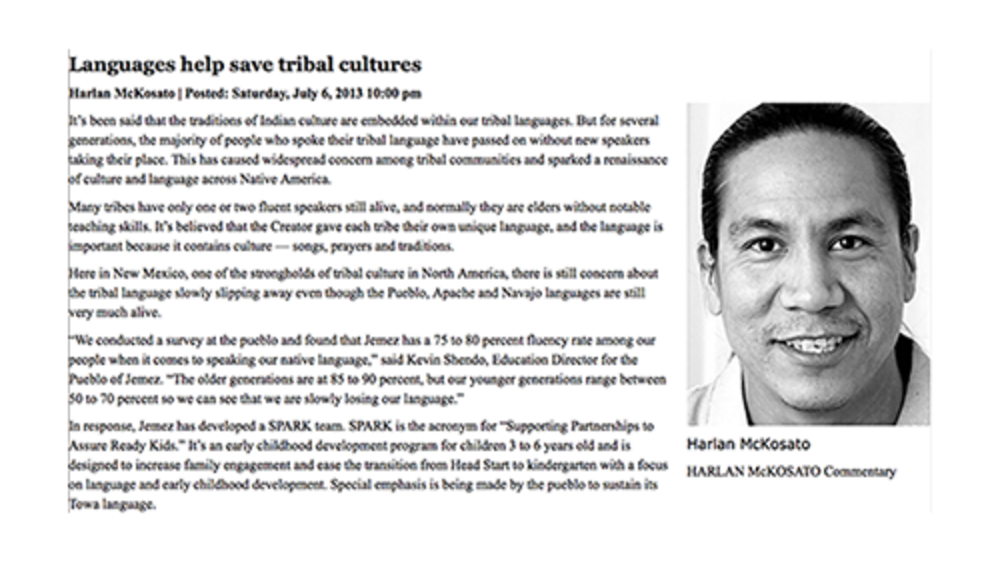
Languages help save tribal cultures
It’s been said that the traditions of Indian culture are embedded within our tribal languages. But for several generations, the majority of people who spoke their tribal language have passed on without new speakers taking their place. This has caused widespread concern among tribal communities and…
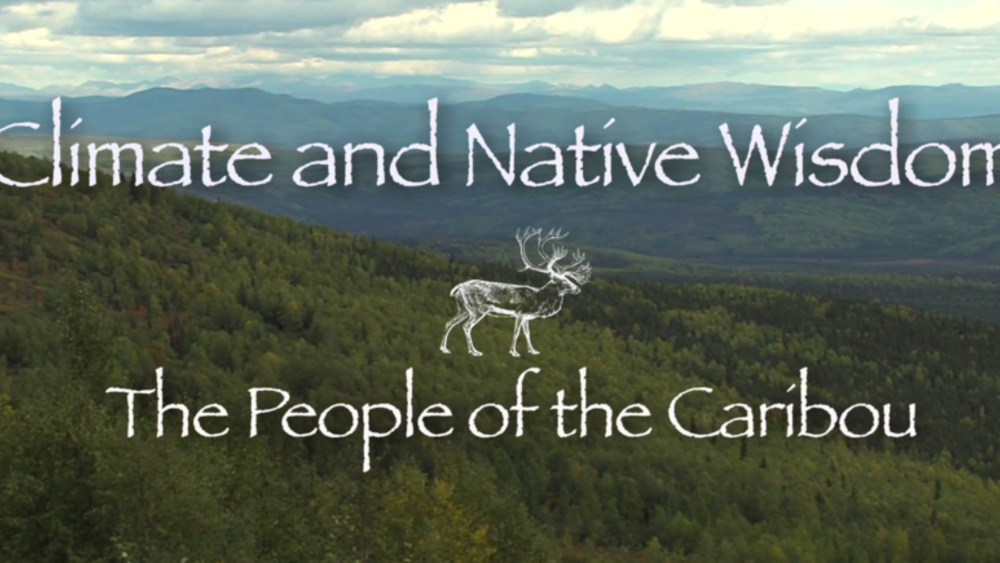
The Cutting Edge: Climate and the People of the Caribou
Wisdom of the Elders, Inc. (Wisdom) is producing a new series of Native American climate documentaries along with our fourth series of Wisdom of the Elders Radio Program. These oral history, cultural arts and climate science series feature the rich voices of more than 40 exemplary Native elders,…
